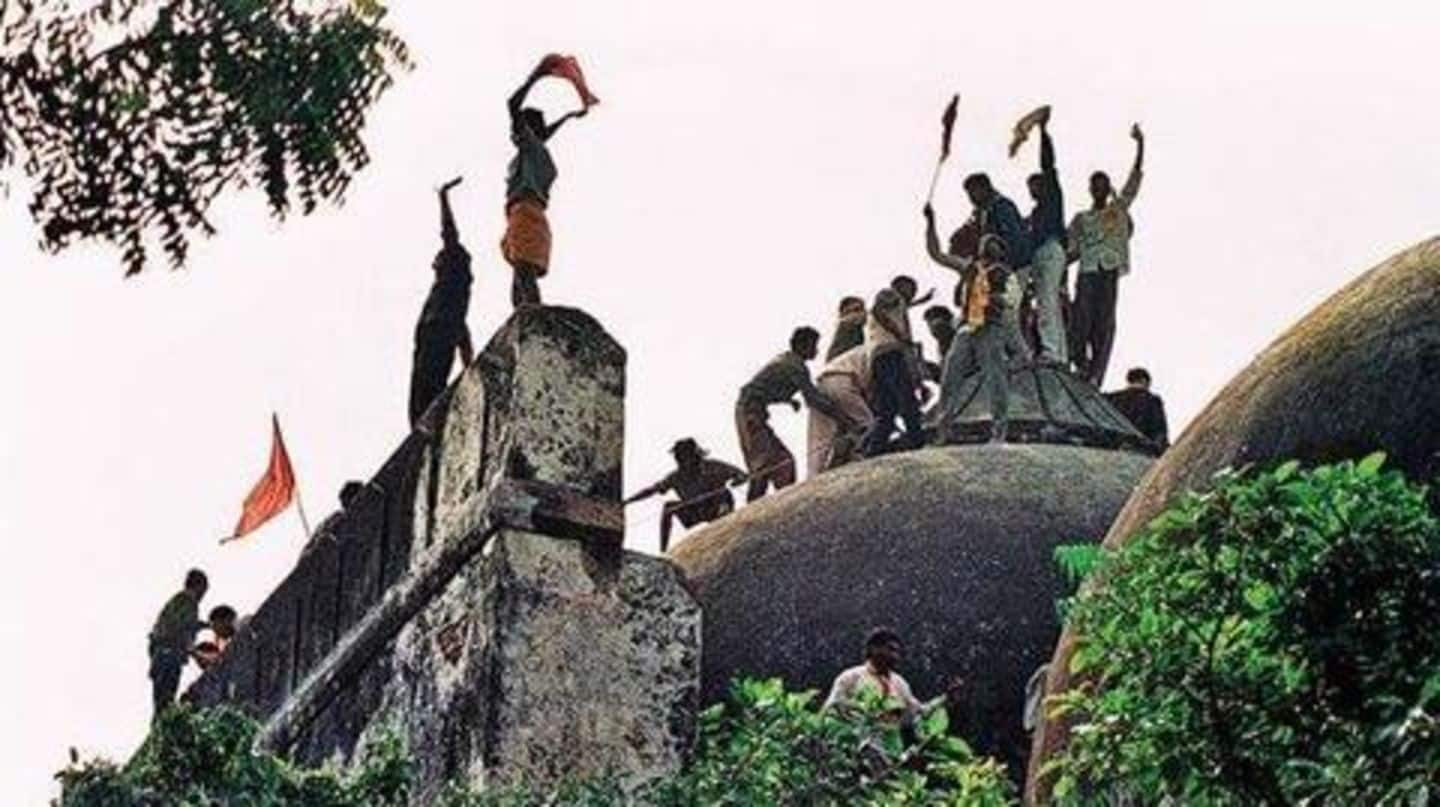
Ayodhya: Mediation-panel gets more time, next hearing on August 2
What's the story
In the sensitive Ayodhya case, mediation will continue till July 31, the Supreme Court said on Thursday.
The constitutional bench, headed by CJI Ranjan Gogoi, asked the mediation panel to submit its findings till August 1 while fixing August 2 as the next hearing date.
To recall, the court formed the panel hoping that the case reaches conclusion through talks.
Here are more details.
Details
On July 11, SC sought report from mediation panel
The three-member mediation panel is headed by SC Justice (Retd) FMI Kalifulla. It includes spiritual guru Sri Sri Ravi Shankar and senior lawyer Sriram Panchu.
On July 11, the five-judge bench asked the panel to submit its progress by July 18, for it to start day-to-day proceedings from July 25.
The court noted there was no point of continuing mediation if it didn't yield results.
Context
Understanding what the Ayodhya case is all about
To recall, the Ayodhya title dispute pertains to 2.77 acres of land in the Uttar Pradesh town.
In 1992, Babri Masjid, a 16th-century mosque, was razed by Hindu activists as they believed Lord Rama took human form at the exact spot.
After the demolition, riots broke out across the country killing thousands. In 2010, the Allahabad High Court gave its verdict in the case.
HC's verdict
Allahabad HC divided land equally, but parties weren't happy
Allahabad HC divided the land equally among all three parties- deity Ram Lalla, Sunni Waqf Board and Nirmohi Akhara.
But none of the parties were satisfied with the judgment and approached the top court.
Almost a decade after Allahabad HC pronounced the verdict, the case hasn't reached any conclusion in the SC.
The case was subsequently referred to the said mediation panel.
Bench
Despite objection from petitioners, SC chose mediation
Notably, 14 appeals have been filed in court until now in the case, and most of them objected to mediation. Only Sunni Waqf Board, Nirmohi Akhara, and one of the Hindu petitioners liked this idea.
Nevertheless, the bench, which includes Justices SA Bobde, DY Chandrachud, Ashok Bhushan and S. Abdul Nazeer, concluded that mediation should be given a chance as it may "heal relations".